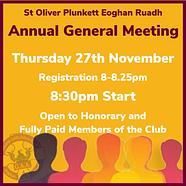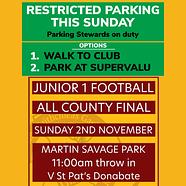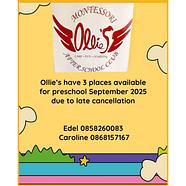By Alan O’Mara
Welcome to my second column as part of the Real Talks with SOSAD Ireland well-being series. Each week I outline a different mental skill that can help you to live a happier, healthier and more successful life. I explain why these mental skills are important, and how you can develop them through strategic and consistent practice.
Life challenges us all in different ways, but I believe the sharing of human experiences empowers us all. I will also share key insights from my work as a performance and well-being consultant with sports and business leaders around the world and reflect on key lessons from my own well-being journey.
What is resilience?
Resilience is the ability to overcome challenges, adapt and keep going after something difficult has happened in life. Resilience helps people to bounce back from failure. Resilience also helps to cope in the face of adversity, trauma or significant sources of stress - such as relationships, exams, grief, health, sport or work. Being resilient won’t make problems go away, but it can help to see past problems, reach out for help, find enjoyment in life and better handle stress.
When I began counselling in my early twenties, I thought I was just trying to beat depression in a one-off fight: Alan vs. Depression. Twelve rounds. My hope was that eventually I could stand up in front of my family and say, ‘I beat it. I’m resilient. Are you proud of me?’ My counsellor had warned me on several occasions against that reasoning, but I took no heed. I only saw resilience as the ability to overcome hardship and didn’t realise that it was far more nuanced than that. I learned the hard way that resilience is not about the ‘lifting the cup’ moments.
Resilience is more to do with the little things, like how we manage, cope and respond to our thoughts, feelings and actions on a day to day basis. Using self-awareness, which I spoke about in last week’s column, along with resilience, equips me to better understand what is happening in real-time and to make better decisions when the going gets tough. Being able to spot downward slides and take proactive actions have helped me to rebound, or even avoid, some serious mental health struggles.
I often encourage sports and business leaders that I work with to get into the habit of rating their mood from one to ten, and to think about the resilient actions they can do when the going gets tough. It can be as simple as going to the cinema with a friend instead of sitting at home alone watching a movie, or going for a walk surrounded by nature instead of lying on the couch. Tough times are part of life and bad days happen to us all. Sometimes bad days become bad weeks, and resilience can help us navigate those challenging spells. However, being resilient does not mean we should carry the burden alone if bad weeks start to become bad months. Sometimes the most important act of resilience is asking for help.
I am grateful to have been part of many conversations about resilience over the years thanks to my work as a performance and well-being consultant. In a recent conversation with Ireland and Liverpool footballer Leanne Kiernan for the Real Talks with SOSAD Ireland well-being series, she highlighted resilience as an integral mental skill and explained how much she benefits from working with a mentor. She said, “I feel like mentality is one of the most important things to have in life. Everybody trains hard but it's your mentality and your resilience and not giving up when you are thrown aside or not looked at the way you think you should be looked at. It’s being able to bounce back from that. It makes you stronger.”
Developing resilience
Building resilience can happen in many different ways but like all mental skills, becoming more resilient takes time and practice.
One of the best ways to develop resilience is through reflection. Reflection helps us to look into our past to find experiences, evidence and clues that can guide us in the present and future. Take 5 deep breaths and think about when you were resilient during a difficult time. What did you do that helped you cope or get through that challenge? Maybe it was sharing problems with friends or family or going for a walk or a run. Perhaps it was seeking support from a mental health professional or being more self-compassionate.
Everyone deals with adversity in different ways at different times. Figuring out what works for you will help develop resilience.
Go to sosadireland.ie/real-talks/ to learn more about how mental skills can help you live a happier, healthier and more successful life.








